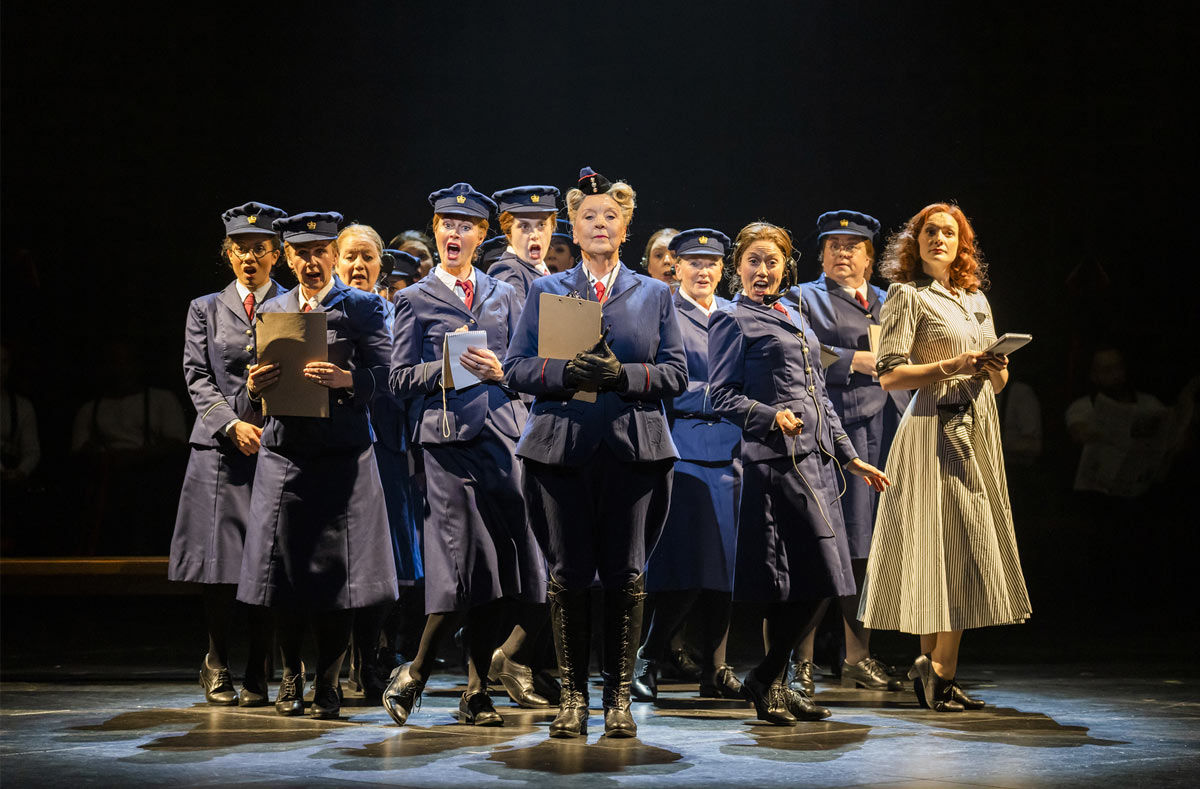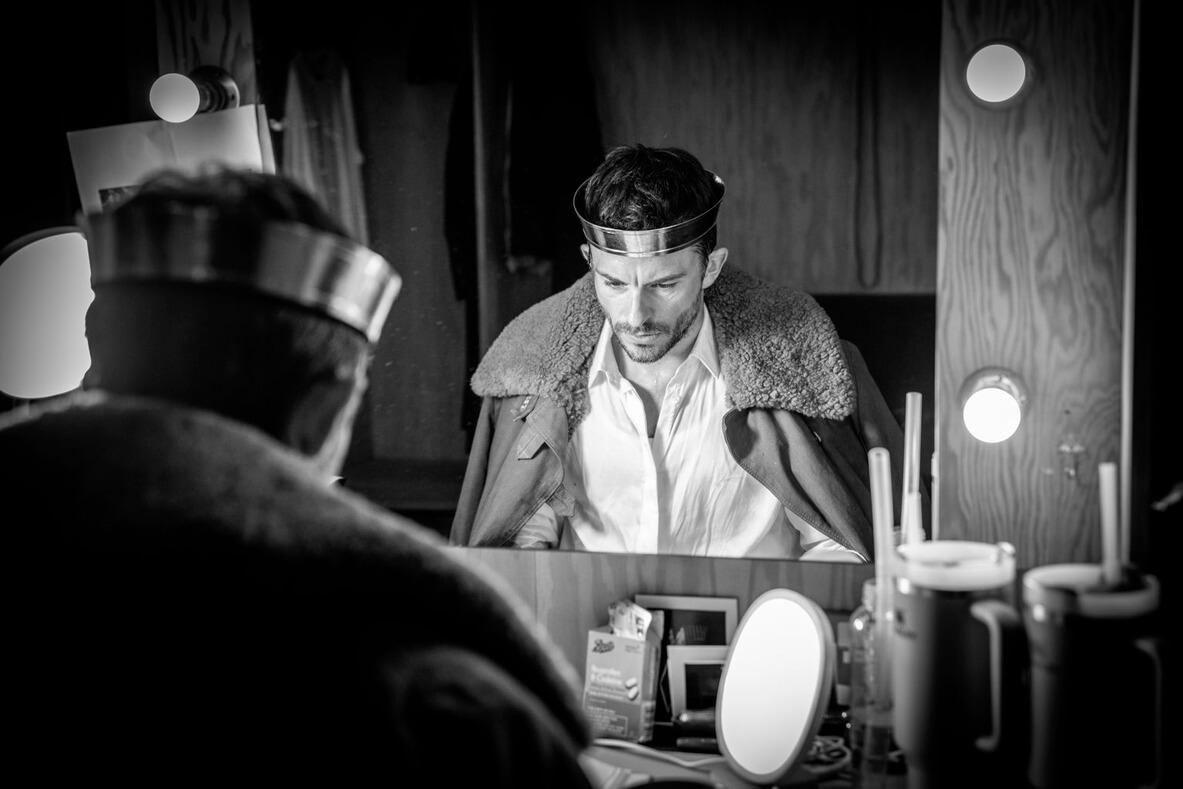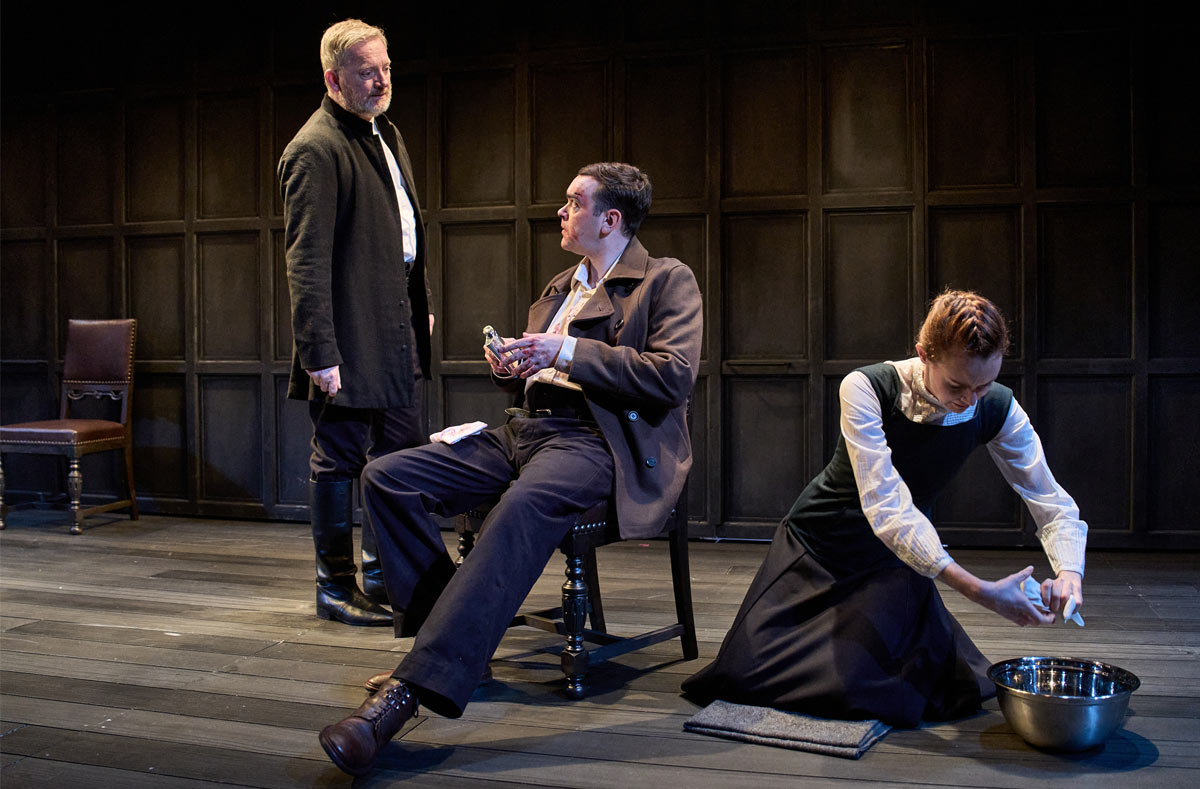In true G&S fashion, the basic story is supplemented by layers of convoluted sub-plot, adding intrigue, confusion and considerable silliness. A returning son, a troupe of players, false beards and a delayed Royal pardon all find their place in the general mayhem, with several noticeable updates to the lyrics required to land the comedic elements, which included a devastating (and warmly received) crack at Brexit.
In a world of TikTok video clips and instant online gratification it’s easy to find oneself questioning the relevance, appropriateness and general appetite for such productions — certainly the average audience member appeared to be well into their 60s (with waves of stifled coughs, signalling that many may not be much long for this world) however, this is perhaps not the forum on which to ponder the future, or otherwise, of Gilbert & Sullivan in mainstream culture.
Amidst the confetti and well-wishes of the finale, Yeoman… is often noted for having an unusually sad twist for one particular character. Here, as the comic player Jack Point actor Richard McCabe was the embodiment of romantic rejection having earlier battled valiantly with the tongue-tripping patter required of the role. John Molloy’s oily gaoler Wilfred Shadbolt was thankfully able to steady the tempo during the pair’s Act II comic duet.
Anthony Gregory as the handsome and heroic prisoner Colonel Fairfax, made the part his own with beautiful lyric tenor vocal delivery and a comic edge which revelled in scorning his death sentence. Heather Lowe as Phoebe, was suitably lascivious then affronted when passed over for Elsie played by Alexandra Oomens who dazzled with powerful top notes throughout (though may have succumbed to a momentary lapse in concentration delivering a passage of grace notes, which may have elicited an amused reaction from certain female chorus members). For their part on press night, the male chorus were as rousing and attuned as the best Welsh Male Voice Choirs, adding considerably to the overall effort.
Anthony Ward’s beautiful set really comes into its own at the top of ActII where the Tower takes centre stage and is revolved to allow for momentary reveals and intimate exchanges, but it would be remiss to ignore his thoughtful reimagining of the period — especially the use of black and white newsreel projections of Prime Minister Alec Douglas-Home’s cabinet at the outset which sets a nostalgic tone in director Jo Davies’ production and taps into the 1950s spying revelations, providing a neat explanation for our hero’s imprisonment in this updating.

 A scene from Yeoman Of The Guard by Gilbert & Sullivan @ Coliseum. Directed by Jo Davies. Conductor, Chris Hopkins. ©Tristram Kenton
A scene from Yeoman Of The Guard by Gilbert & Sullivan @ Coliseum. Directed by Jo Davies. Conductor, Chris Hopkins. ©Tristram Kenton

